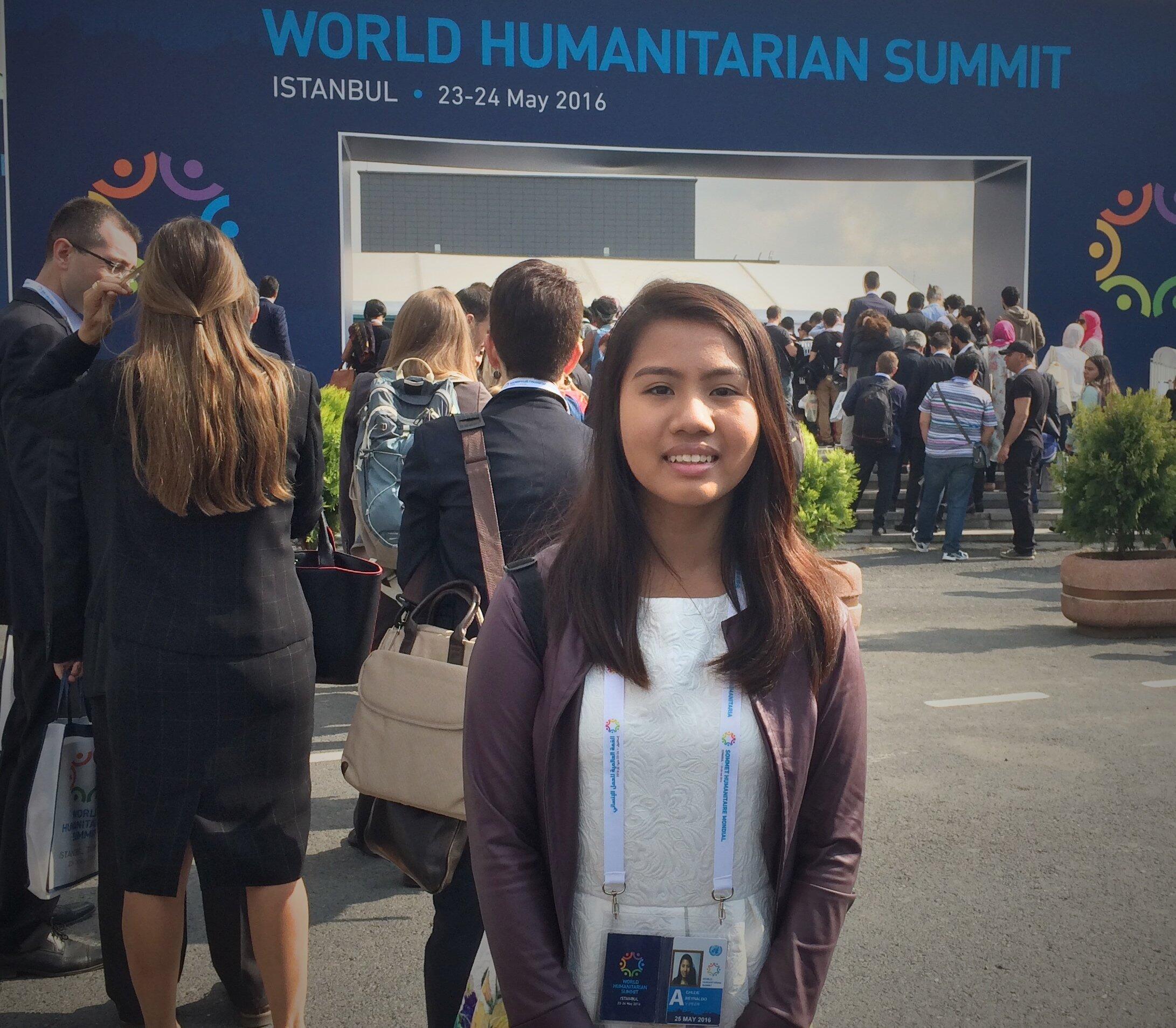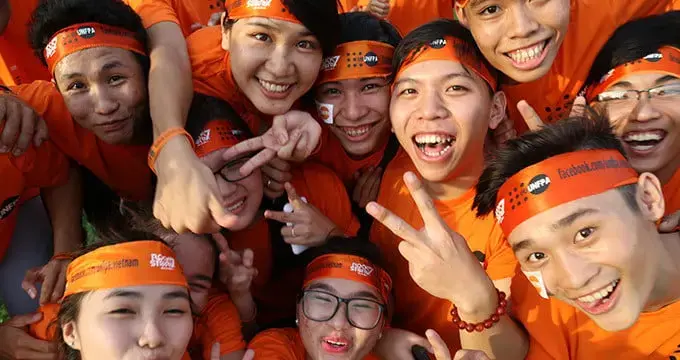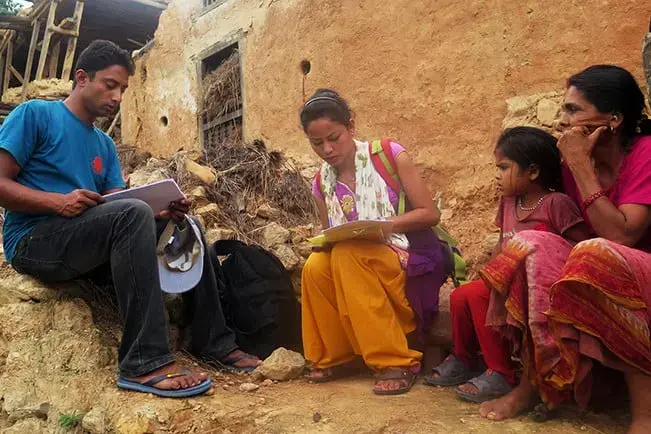Chloe Reynaldo (16) educates young people in the Philippines about sexual and reproductive health and rights. In recognition of her work, she was one of a select few young leaders from around the world invited to speak and participate at the first ever World Humanitarian Summit. Here's her impressions from Day 1.
Close your eyes and picture this. No really, go ahead. Right, so step into my skin. You’re a sixteen-year-old Filipina who’s noticeably shorter than practically everybody else in the crowd. That “crowd” consists of impeccably-dressed men and women, with serious eyes and purposeful stances. The sound is filled with people talking – and you don’t really understand because there are what, ten, twenty languages? Maybe even more.
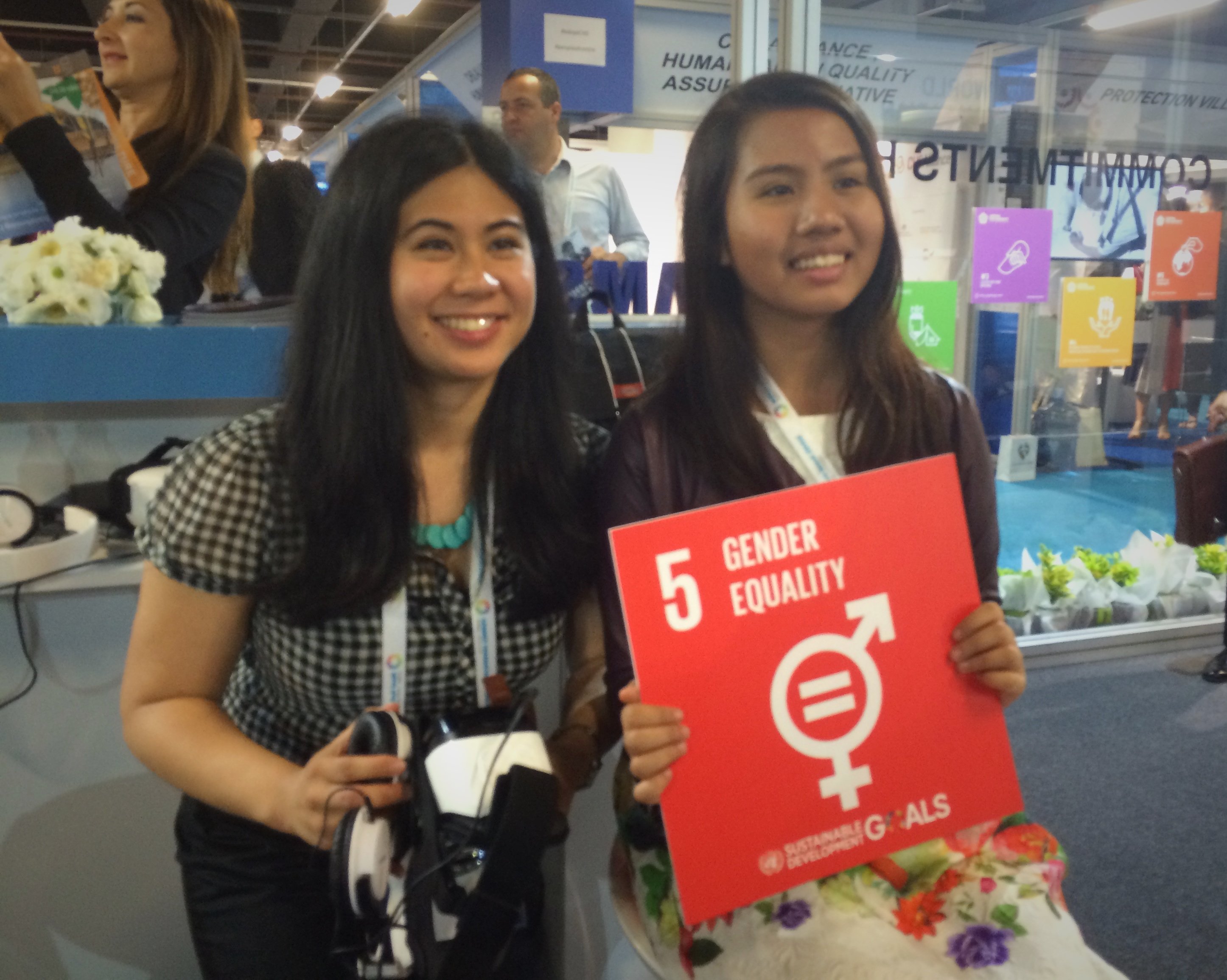
Chloe Reynaldo (right) and friend at the 'innovation marketplace.'
That’s what walking into the World Humanitarian Summit was like. Intimidating, nerve-racking, exhilarating – and extremely interesting. The minute you walk in you’re bombarded with a crowd of epic proportions – and not just any crowd. Every person there deals in social work, whether for humanitarian crises, gender discrimination, adolescent sexual rights – and every single one of them is well-versed and successful in their respective fields.
The morning was a whirlwind of activity, as everyone gathered in their respective places. I attended a session for prioritizing sexual and reproductive health (SRH) in humanitarian crises, one of the many simultaneous sessions being held at the summit. The panel consisted of accomplished personages, most notably Dr. Babatunde Osotimehin, the Executive Director of UNFPA, and Her Royal Highness Princess Sarah Zeid of Jordan, who represented Every Woman, Every Child, Everywhere.
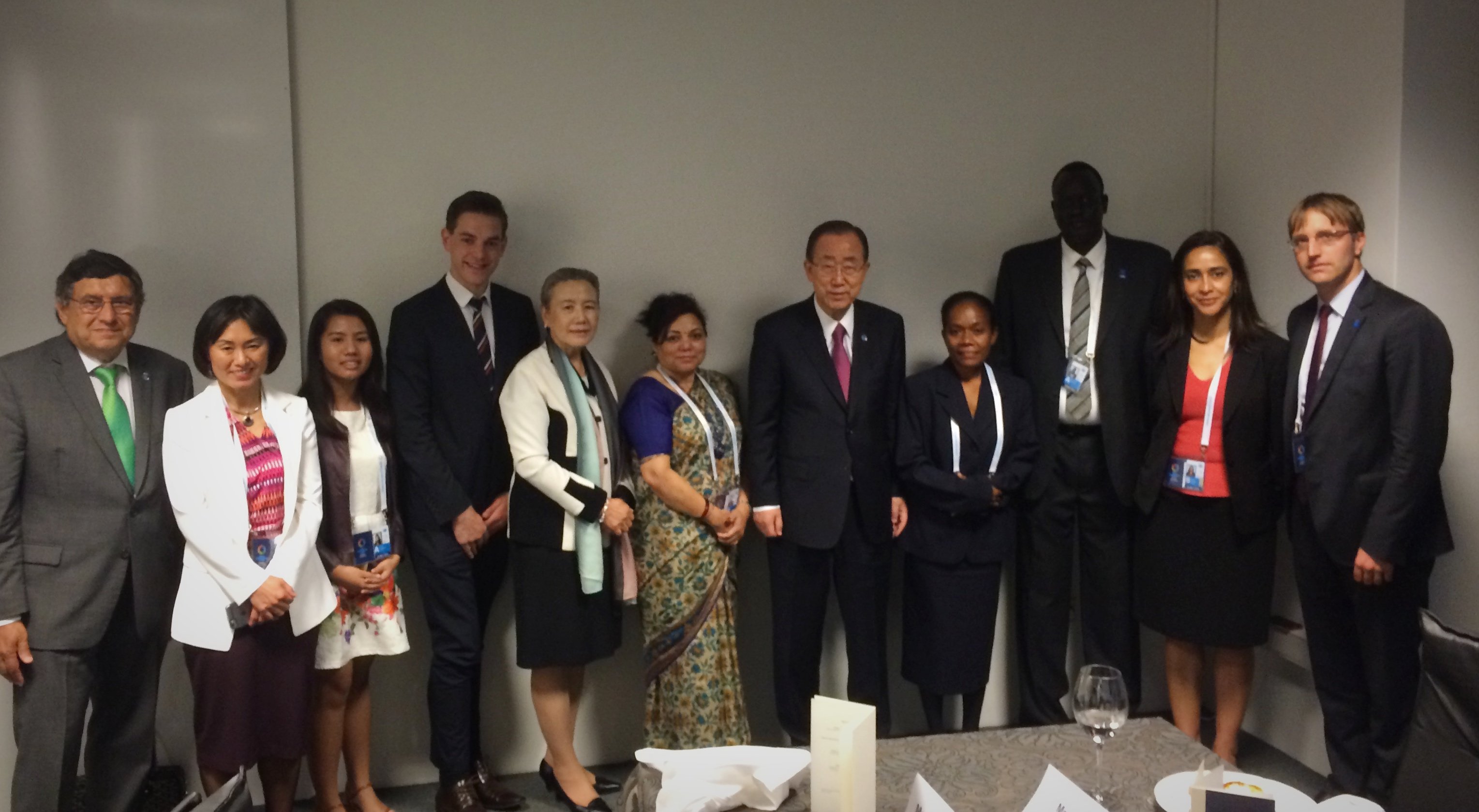
Chloe Reynaldo (third from left) and other youth activists meet UN Secretary General Ban Ki-moon.
The importance of addressing SRH needs in humanitarian settings was focused on and heavily emphasized. Many thought-provoking ideas were raised, such as making military members more gender-sensitive as they are usually the first responders, making SRH services absolutely mandatory in all decision-making for planning a response, and having girls and women be the core of the response itself. Mr. Rajat Khosla, a Human Rights Advisor representing the World Health Organization (WHO), had this remarkable statement; “We cannot find any more excuses for using women’s bodies as political battlegrounds.”
After the session, I had lunch with the United Nations Secretary-General, Mr. Ban Ki-moon. Okay, I just made that sound like the most commonplace thing ever, and it was anything but commonplace. We ate with other social workers from around the world, representing Nepal, South Sudan, Vanuatu, and the Netherlands. Each of us got time to share our own experiences working in the humanitarian field. The discussion was very engaging. Mr. Ban was kind and accommodating, and he listened carefully to each of us and then gave his own opinion. Unfortunately, he had to leave early – being the Secretary-General and all, he had to attend to a lot of meetings – but the luncheon had been a productive one, and I’m sure everybody left with a greater knowledge and a broader outlook. Each guest brought something different to the table – whether experience in dire humanitarian settings, or their views on their country’s politics, or their work directly after disasters, each of us somehow managed to convey one similar message – that working together is essential to change, and change is essential to development. And if we are all developing, we continue to grow.
Today was a busy day, as I would have expected – but tomorrow promises to be a bigger one. The first day of the World Humanitarian Summit left little to be desired, and much to be anticipated. I’m eager to see what the second day brings!
Read Chloe's blog post from Day 2.
A side event on 'transformative humanitarian action for prioritizing sexual and reproductive health.'

